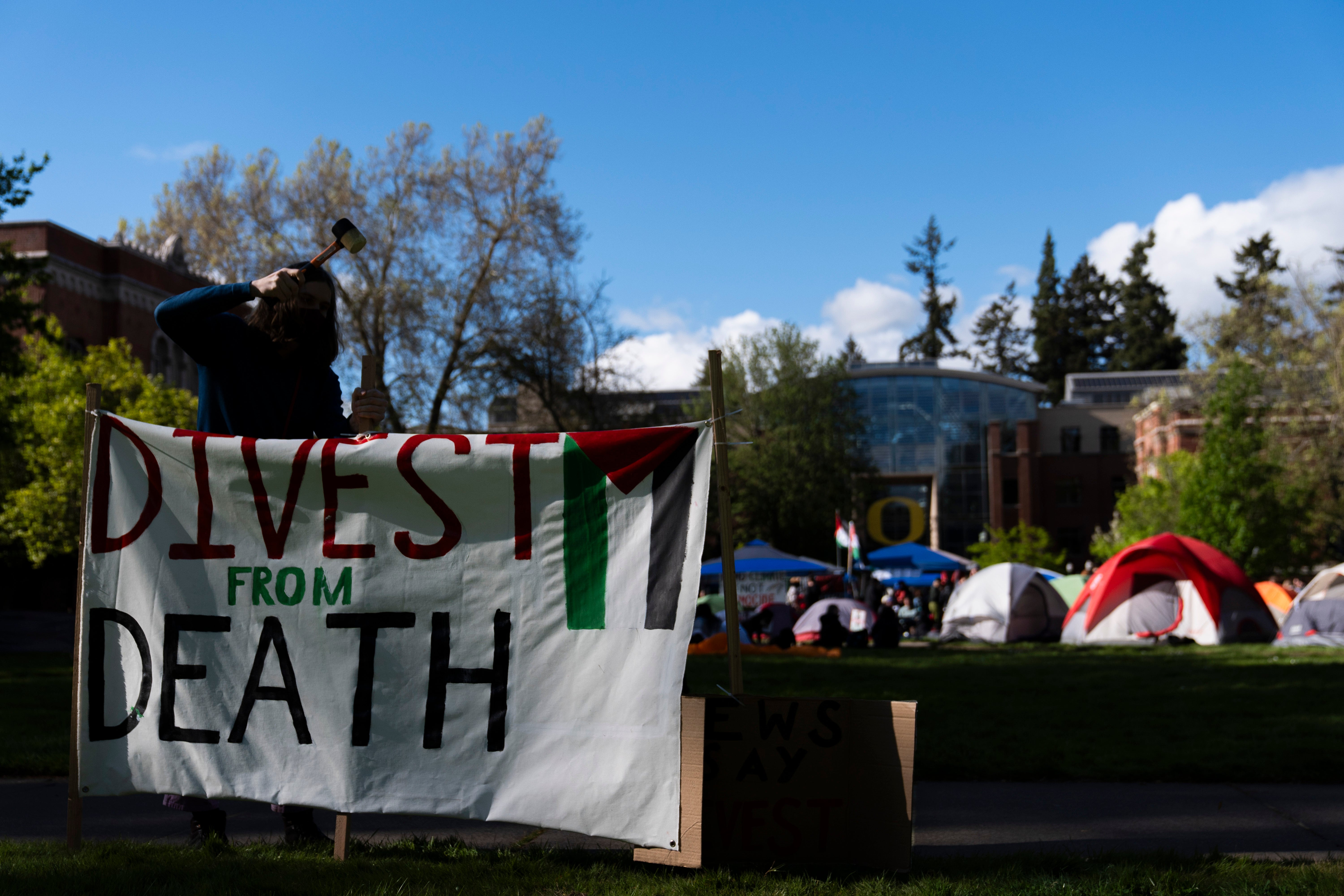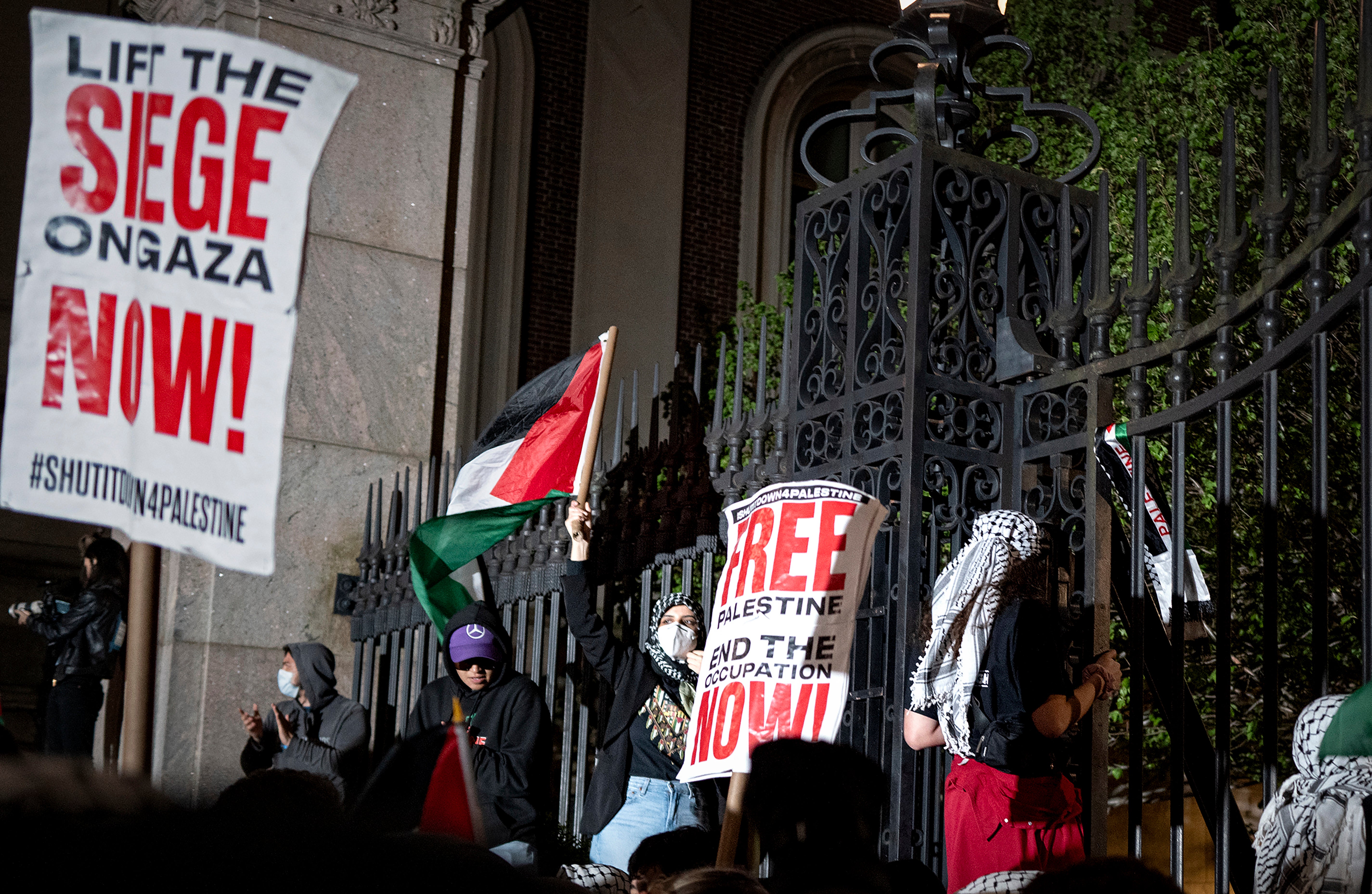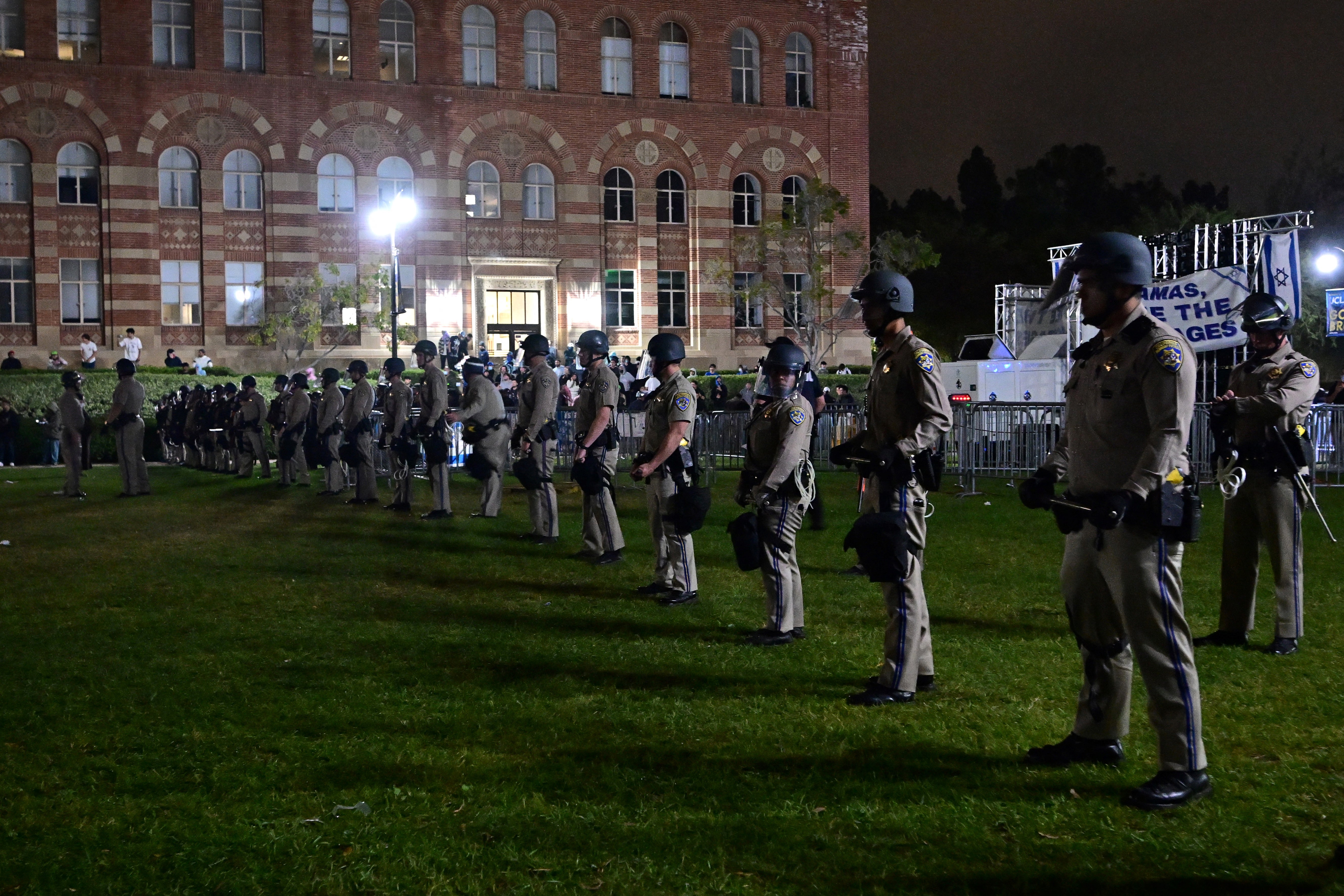Brown agreed to vote on divestment and Columbia refused: what does it mean for colleges and how would it work?
Columbia University and numerous other schools have refused Gaza solidarity protesters’ demands for divestment. Graig Graziosi explains what exactly protesters are wanting


Your support helps us to tell the story
From reproductive rights to climate change to Big Tech, The Independent is on the ground when the story is developing. Whether it's investigating the financials of Elon Musk's pro-Trump PAC or producing our latest documentary, 'The A Word', which shines a light on the American women fighting for reproductive rights, we know how important it is to parse out the facts from the messaging.
At such a critical moment in US history, we need reporters on the ground. Your donation allows us to keep sending journalists to speak to both sides of the story.
The Independent is trusted by Americans across the entire political spectrum. And unlike many other quality news outlets, we choose not to lock Americans out of our reporting and analysis with paywalls. We believe quality journalism should be available to everyone, paid for by those who can afford it.
Your support makes all the difference.The Gaza campus protests on Brown University will come to an end, at least through the end of the school year, but not because police stormed student encampments and hauled out demonstrators in zip ties.
Brown has instead successfully negotiated an end to the protests by agreeing to hold a vote on a key issue driving the protests: divestment.
The university's corporate board agreed on Tuesday that it will hold a vote on whether or not it will divest its interest from Israel, a major victory for students protesting the ongoing war in Gaza.
In return, protesters will tear down their encampment, and have agreed not to restart protests during the school year.
“The devastation and loss of life in the Middle East has prompted many to call for meaningful change, while also raising real issues about how best to accomplish this,” Christina Paxson, the university's president, wrote in a statement. “Brown has always prided itself on resolving differences through dialog, debate and listening to each other.”
While the broader point of the protests has been to call attention to Israel's treatment of Palestinians since the 7 October Hamas terror attack, the more direct — and actionable — issue at the heart of the campus demonstrations has been a demand for colleges to stop spending money in ways that benefit Israel.

Divestment
“Disclose, divest, we will not stop, we will not rest,” has been an oft repeated chant on the campus of Columbia University, where the latest round of student protests began in mid April.
Disclosure is obvious — the protesters want to know how the universities are spending their money, specifically with regard to money that benefits Israel.
Divestment is, essentially, the opposite of an investment. The students want their schools to stop pouring money into Israel, which they argue makes them complicit in the ongoing violence in Gaza.
Palestinian advocacy groups have called for divestment since at least 2005. Since then, BDS — boycott, divest, sanction — has been a common demand from advocates for Palestine.
Universities maintain endowments, which are funds they use to invest in stocks, bonds, and companies to help generate revenue.
Different student groups have different demands when it comes to divestment. At Brown, students agreed to end their protest so long as the university at least holds a vote on the matter. At Yale and Cornell, students have asked that their schools specifically divest any money that aids in weapon manufacturing.
At Columbia, students have made a more substantial ask; they want the school to stop using its $13.6bn endowment to invest in any company that does business with Israel. That includes major international powerhouses like Microsoft, Alphabet, and Amazon, according to CNN.

What does divestment look like?
Columbia has actually divested in the interest of civil rights in the past; in the 1980s, students protesting apartheid South Africa successfully convinced the school to sell the majority of its stocks in companies connected to South Africa. That divestment included selling stock in Ford and Coca-Cola.
Nicholas Dirks, a former chancellor of the University of California, spoke with CNN and argued that university investments were more complicated today than in the 1980s, making divestment a tricky road to travel.
“The economy is so global now that even if a university decided that they were going to instruct their dominant management groups to divest from Israel, it would be almost impossible to disentangle,” he told CNN. “It’s not clear to me that it’s really possible to fully divest from companies that touch in some way a country with such close political and trade ties to the US."
Professor Todd Ely from the School of Public Affairs at the University of Colorado, Denver, said that divestments don't typically work to shift a company's behaviour, but it can work to draw significant attention to a cause.
"Divestment itself doesn't really influence the companies or the industries being targeted directly," he told NPR. "It's more the stigma created and drawing attention to the issue more broadly."
He agreed with the statement that modern university endowments are complex, and make divestment a complicated — though not impossible — endeavour. He pointed out that investments made through endowments are intended to go back to supporting students and providing financial aid.
"So it's a complex situation where calls to change the way these funds are invested by students and other interested parties do end up kind of in a circular way going back to support the students themselves," he said.
Chris Marsicano, an assistant professor of education studies at Davidson College, told PBS that the divestment movement against apartheid South Africa did not greatly affect its economy, but the "slow drip" of headlines about colleges dropping their support did put political pressure on the nation.
"So we're pretty sure that — from research, that divestment in South Africa didn't make a big economic impact, which shouldn't be a surprise, as universities weren't heavily invested in South Africa during the apartheid era," he said. "But the political pressure, the slow drip of headline after headline after headline announcing different colleges and universities divesting certainly put political pressure on the apartheid regime."
He said it appears that the Columbia protests have been successful in putting political pressure on Israel, pointing to the fact that Israel's Prime Minister Benjamin Netanyahu felt the need to denounce the demonstrations.
"When we hear last week that Prime Minister Netanyahu specifically mentions campus protests in the United States, that lets us know that college students have captured the attention of key stakeholders for peace," he said.

What are universities saying about divestment?
On 29 April, Columbia University president Nemat Minouche Shafik, said the school would not divest from Israel, and they are not the only school to balk at the students' demands.
The University of California also said it would not divest, claiming doing so "impinges on the academic freedom of our students and faculty and the unfettered exchange of ideas on our campuses," according to a statement.
American University in Washington DC also rejected divestment calls.
“Such actions threaten academic freedom, the respectful free expression of ideas and views, and the values of inclusion and belonging that are central to our community,” Sylvia Burwell, the president of American University, said in a statement, according to the Associated Press.
At Yale, University President Peter Salovey said in a message that the school's Advisory Committee on Investor Responsibility recommended against divestment, including divestment from certain military weapons manufacturers.
The University of Michigan rejected calls for divestment, noting that it has no direct investment with Israeli companies, and that only a fraction of a per cent of the university’s $18bn endowment was indirectly invested. The college justified its decision by referring to a 20-year-old policy that "shields the university's investments from political pressures."
Some colleges have been more amenable to discussing divestment.
Like Brown, protests at Northwestern Univeristy ended after the school agreed late on Monday to create an advisory committee on university investments.
Portland State University took a step toward divestment when it announced on 29 April that it would pause its gifts and grants from Boeing in response to protesters demands.
UC Riverside also agreed to “examine” its endowment fund.
“The UC Riverside campus agreed to form a taskforce to examine whether the college’s endowment fund should be removed from the wider UC investment office in order to divest.”
The University of Texas, Dallas, said it would also welcome “the opportunity for open, respectful dialogue” with student protesters on the issue, KERA reports.
According to US Department of Education data, approximately 100 US colleges have reported either gifts or contracts from Israel that total $375m over the last 20 years.
Join our commenting forum
Join thought-provoking conversations, follow other Independent readers and see their replies
Comments